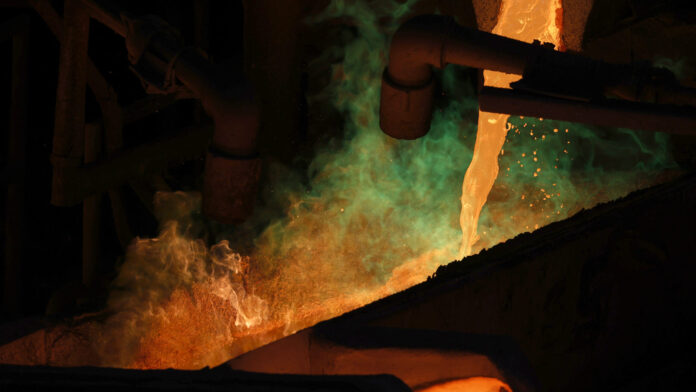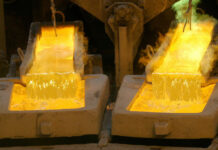
COPPER smelters are paying unprecedented sums to process raw materials as China’s aggressive expansion of processing facilities creates a global market imbalance that threatens the viability of facilities worldwide, the Financial Times reported today.
Processing fees charged by smelters have turned negative for most of this year, hitting a record low of minus $45 per ton in May, said the newspaper, citing Fastmarkets data. This means smelters are effectively paying to process copper concentrate rather than earning their traditional margins, forcing many to operate at a loss simply to keep running.
“There is likely to be reduced copper smelter activity and potentially also some shutdowns in the Asian market,” Toralf Haag, CEO of copper producer Aurubis, told the FT.
The crisis stems from China’s strategic push to dominate base metals markets through massive capacity expansion, even as Western nations seek to reduce their dependence on Chinese processing. China has continued building new smelting facilities despite a shortage of the concentrate needed to feed them, the newspaper said.
Several facilities have already succumbed to market pressures. Glencore halted operations at its Pasar smelter in the Philippines in March, citing “increasingly challenging market conditions.” Analysis group CRU reported that continued commissioning of Chinese smelters is exacerbating downward pressure on processing fees.
The negative fees persist despite copper prices reaching near-record levels, with London copper trading at roughly £7,650 per ton on Monday. Global demand is expected to outstrip supply by 30% by 2035, according to the International Energy Agency.
Analysts warn that benchmark processing fees on long-term contracts between smelters and miners could turn negative for the first time, potentially forcing “meaningful smelting capacity reductions,” said Andrew Cole of Fastmarkets.











